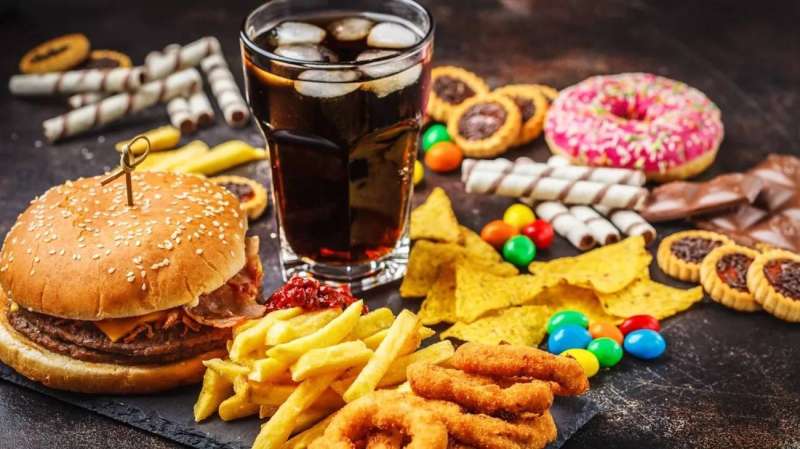In a world where convenience often trumps caution, a growing body of evidence is shedding light on the hidden dangers lurking within a significant portion of our daily diets—ultra-processed foods. These convenient, ready-to-eat products, prevalent in the United States and beyond, are not only linked to a higher risk of cancer, heart disease, obesity, and premature death but are also pervasive in our food supply, comprising an estimated 71% of the offerings on our shelves.
The Food and Agriculture Organization of the United Nations defines ultra-processed foods as those containing ingredients “never or rarely used in kitchens, or classes of additives whose function is to make the final product palatable or more appealing.” This classification includes a concerning list of additives that go beyond mere preservatives, delving into the realm of emulsifiers, artificial colorings, anti-foaming agents, and more.
Preservatives are often added to resist mold and bacteria, emulsifiers work to prevent the separation of incompatible ingredients, and artificial colorings aim to enhance visual appeal. Additionally, a host of other agents such as anti-foaming, bulking, bleaching, gelling, and glazing agents find their way into these processed concoctions. Perhaps most alarming is the manipulation of fundamental elements like sugar, salt, and fats, altered with the specific intent of reaching a “bliss point” that proves irresistibly palatable.
Even foods with a seemingly short ingredient list can fall under the ultra-processed umbrella. The culprit? Industrial techniques like extrusion, molding, and pre-frying, which some experts argue essentially predigest the food. These methods may streamline production but also contribute to the alarming health risks associated with these dietary choices.
The Health Toll: A Link to Chronic Conditions and Premature Death
Research has consistently linked the consumption of ultra-processed foods to an increased likelihood of developing chronic conditions, including cancer, heart disease, and obesity. A comprehensive study published in the British Medical Journal found that a 10% increase in the proportion of ultra-processed foods in the diet was associated with a 12% higher risk of overall cancer.
Moreover, these products have been associated with a higher risk of premature death. A study published in JAMA Internal Medicine followed the dietary habits of over 44,000 French adults for a decade. The findings were stark: those who consumed more ultra-processed foods faced a higher risk of early mortality. As our reliance on convenience continues to shape our dietary habits, experts emphasize the urgent need for greater awareness and scrutiny regarding the foods we consume daily.
Unraveling the Ingredients of Ultra-Processed Foods
As consumers, we often trust the labels on our food to guide our choices. However, the complex world of ultra-processed foods can make deciphering these labels a daunting task. Public health advocates are calling for more transparent labeling, increased consumer education, and regulatory measures to limit the prevalence of ultra-processed foods in our diets.
The list of additives found in these products goes beyond mere enhancements; they are often chosen for their ability to manipulate taste, texture, and appearance. Preservatives extend shelf life, emulsifiers maintain consistency, and artificial colorings create an illusion of freshness. These elements, when combined, create a product that is not only addictive but also potentially harmful to our long-term health.
The Role of Industrial Techniques
Even seemingly simple and minimally processed foods can be altered to fit the ultra-processed mold. This is attributed to industrial techniques like extrusion, molding, and pre-frying, which, while efficient in production, may be detrimental to our health.
Extrusion, for example, involves pushing a mixture of ingredients through a machine at high pressure and temperature to create a uniform product. This process, often used in the production of snacks and breakfast cereals, has been criticized for altering the structure of proteins and starches in ways that could contribute to health issues.
Molding, another common industrial technique, allows for the creation of uniform shapes and sizes, enhancing the visual appeal of products. While this may seem harmless, the reshaping of food at a molecular level during molding can result in a product that our bodies process differently than its natural counterpart.
Pre-frying is yet another technique employed to provide a crispy texture to many processed foods. However, this process introduces additional fats and can lead to the formation of harmful compounds, contributing to the overall negative health impact of ultra-processed foods.
The Way Forward: A Call for Conscious Consumption
As the evidence mounts, the choice between convenience and long-term health is becoming an increasingly critical decision for individuals and society alike. The silent dangers of ultra-processed foods demand attention, prompting a reevaluation of our dietary choices and a collective effort to prioritize health over momentary convenience.
Public health initiatives aimed at raising awareness about the potential risks associated with ultra-processed foods are crucial. Additionally, advocating for clearer labeling, promoting consumer education, and implementing policies that limit the prevalence of these products in our food supply are steps toward a healthier future.
In a world inundated with fast-paced lifestyles and on-the-go meals, the price we pay for convenience may be far higher than we ever anticipated. The hidden dangers of ultra-processed foods serve as a stark reminder that the choices we make in the present can have profound implications for our future well-being. It’s time to reconsider our relationship with convenience and prioritize a balanced, whole-foods-based approach to nourishing our bodies.



